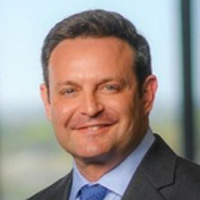Will a Recession Affect Your Retirement? How to Take Action Now!
A bear market or an economic downturn can be scary, especially for retirees. However, solid financial plans are built to withstand these challenges. Here’s how.

Profit and prosper with the best of Kiplinger's advice on investing, taxes, retirement, personal finance and much more. Delivered daily. Enter your email in the box and click Sign Me Up.
You are now subscribed
Your newsletter sign-up was successful
Want to add more newsletters?

Delivered daily
Kiplinger Today
Profit and prosper with the best of Kiplinger's advice on investing, taxes, retirement, personal finance and much more delivered daily. Smart money moves start here.

Sent five days a week
Kiplinger A Step Ahead
Get practical help to make better financial decisions in your everyday life, from spending to savings on top deals.

Delivered daily
Kiplinger Closing Bell
Get today's biggest financial and investing headlines delivered to your inbox every day the U.S. stock market is open.

Sent twice a week
Kiplinger Adviser Intel
Financial pros across the country share best practices and fresh tactics to preserve and grow your wealth.

Delivered weekly
Kiplinger Tax Tips
Trim your federal and state tax bills with practical tax-planning and tax-cutting strategies.

Sent twice a week
Kiplinger Retirement Tips
Your twice-a-week guide to planning and enjoying a financially secure and richly rewarding retirement

Sent bimonthly.
Kiplinger Adviser Angle
Insights for advisers, wealth managers and other financial professionals.

Sent twice a week
Kiplinger Investing Weekly
Your twice-a-week roundup of promising stocks, funds, companies and industries you should consider, ones you should avoid, and why.

Sent weekly for six weeks
Kiplinger Invest for Retirement
Your step-by-step six-part series on how to invest for retirement, from devising a successful strategy to exactly which investments to choose.
News headlines give anyone saving for retirement plenty to worry about. Inflation. High gas prices. Rising interest rates. Rumblings of a possible recession. It’s enough to make even the savviest investors wonder if they’ll outlive their money.
But worrying is no way to live your life — and definitely not a way to live your retirement.
While we can’t predict how the market will behave, we can create a holistic financial plan built to minimize volatility and economic uncertainty.
From just $107.88 $24.99 for Kiplinger Personal Finance
Become a smarter, better informed investor. Subscribe from just $107.88 $24.99, plus get up to 4 Special Issues

Sign up for Kiplinger’s Free Newsletters
Profit and prosper with the best of expert advice on investing, taxes, retirement, personal finance and more - straight to your e-mail.
Profit and prosper with the best of expert advice - straight to your e-mail.
As an example, let’s say the market drops and your IRA’s value drops too. In such a scenario, ask yourself: Did this affect your overall retirement plan? It shouldn’t if that plan accounted for recessions and growth as normal parts of the economic cycle.
Here are a few things that will help you create a retirement plan that’s ready to endure those market ebbs and flows:
Take control of your tax planning
If Congress doesn’t act, those 2017 tax cuts are scheduled to come to a jarring end at the close of 2025, which means rates would return to their previous level in 2026. You can look at this as a reason for anxiety, but there’s also an opportunity. Before this happens, you should consider taking advantage of these historically low tax rates by converting your tax-deferred retirement accounts to Roth accounts.
You do pay taxes when you make the conversion, but if you start now, you can do so in increments while tax rates are lower. But what if you are in a situation where your IRA has temporarily lost value? As an example, let’s say a $1 million IRA dropped to $900,000. Your instinct might be to wait for a market rebound before you convert to a Roth, but why wait? You have less to convert, which means less to pay taxes on. When the market recovers and that IRA’s value takes a leap upward, the leap is tax free.
Consider this powerful bond alternative
A traditional investment mix many people feel comfortable with is 60% in stocks and 40% in bonds. The concept behind this particular balance was that when stocks went up, typically bonds went down, and vice versa. That’s excellent in theory. But recently, stocks and bonds have been moving in lockstep. And we can expect to see losses continue as interest rates rise. What should investors consider as a bond replacement?
Consider fixed-indexed annuities as a substitute for bonds. A fixed-indexed annuity acts as a stabilizer in your portfolio because you can’t lose your principal. Also, when the market starts to return, it will gain in value.
You shouldn’t go all in on annuities (or anything else for that matter). Instead of that traditional 60-40 split, you might consider 10% in bonds, 30% in fixed-indexed annuities and 60% in equities.
Be strategic with stock investments
Speaking of that 60% in equities, as you consider the specifics of your stock investments, a good option is exchange-traded funds (ETFs). These provide diversification and more strategic choices. Stocks that pay a dividend also are worth exploring since they can provide an additional income stream.
These are just a few ways to begin creating a retirement plan designed to absorb market and economic volatility. A truly holistic financial plan is designed to hedge against a market downturn or uncertainty. In fact, those downturns are actually built into the plan. If the pieces are truly integrated, then if one is not performing, another kicks in to offset it.
A financial professional can help you develop such a plan, but try to seek out a fiduciary who will take the time to understand how the different facets of the economy connect with your financial goals and priorities.
That way, when the difficult times arrive (as they no doubt will), you can feel confident knowing that your plan and your financial planner anticipated that moment and were ready.
Ronnie Blair contributed to this article.
The appearances in Kiplinger were obtained through a PR program. The columnist received assistance from a public relations firm in preparing this piece for submission to Kiplinger.com. Kiplinger was not compensated in any way.
Profit and prosper with the best of Kiplinger's advice on investing, taxes, retirement, personal finance and much more. Delivered daily. Enter your email in the box and click Sign Me Up.

Steve Meeks is the president and founder of Interlinc Financial, where he helps clients protect their wealth and lifestyles. With decades of experience, Meeks uses an educational approach to ensure clients have the knowledge to make informed, productive choices. He is a tactical and strategic thinker — skills he developed as a U.S. Navy tactical strategist specializing in warfare and search and rescue. Steve Meeks has passed the 65 Securities exam and has a life insurance license.
